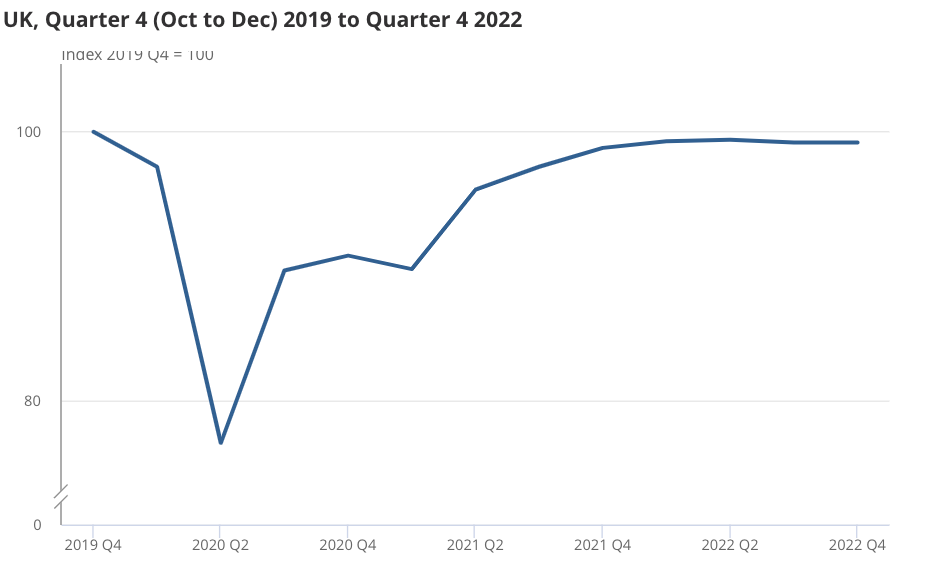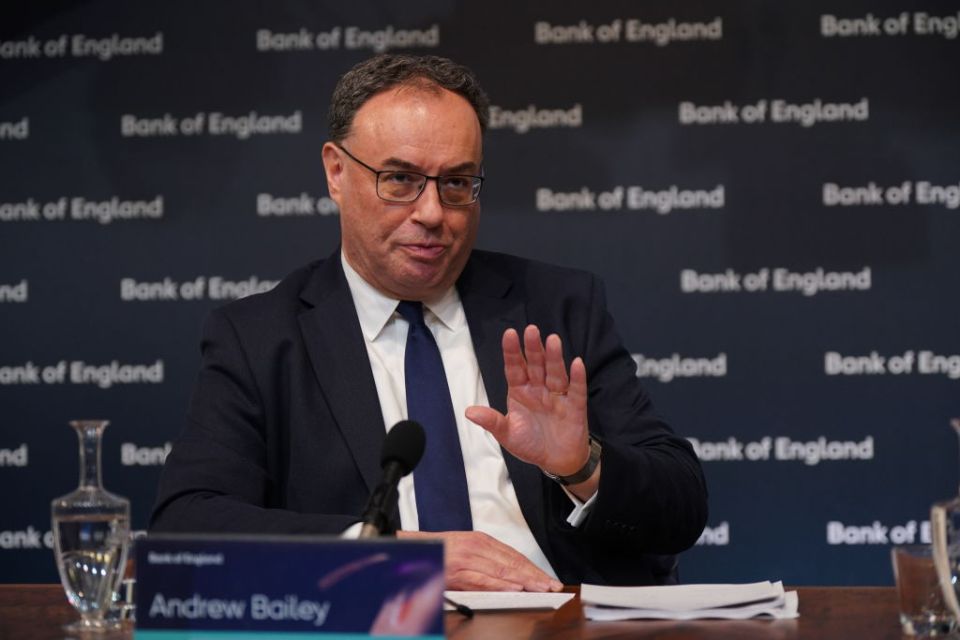UK narrowly avoids recession as GDP remains unchanged but Jeremy Hunt warns country ‘not out the woods yet’

The UK very narrowly avoided a recession in the final months of last year but the economy contracted sharply over Christmas, official figures out today reveal.
Gross domestic product (GDP) remained unchanged in the final three months of last year, meaning the country swerved the technical recession definition of two consecutive quarters of contraction, according to the Office for National Statistics (ONS).
Output is stuttering as households and businesses are squeezed by high inflation, tax rises and higher interest rates.
In December, the economy notched negative growth of 0.5 per cent, much worse than analysts’ expectations of 0.3 per cent.
Experts said the end of the Qatar 2022 World Cup, postponement of the Premier League and mass strikes heaped pressure on the economy, forcing it into reverse.
The economy isn’t in recession but is flatlining

“In December public services were hit by fewer operations and GP visits, partly due to the impact of strikes, as well as notably lower school attendance. Meanwhile, the break in Premier League football for the World Cup and postal strikes also caused a slowdown,” Darren Moore, director of economic statistics at the ONS, said.
UK GDP grew four per cent in 2022 as a whole, making it the best performing economy in the rich world.
“The fact the UK was the fastest growing economy in the G7 last year, as well as avoiding a recession, shows our economy is more resilient than many feared,” chancellor Jeremy Hunt said.
“However, we are not out the woods yet, particularly when it comes to inflation,” he added.
The economy is still 0.8 per cent smaller than it was before Covid-19. Every other G7 economy has returned to pre-pandemic levels.
Britain’s services economy, which accounts for around every £1 in £3 produced in the country, contracted nearly one per cent in December, signalling consumers are cutting spending on unnecessary things like eating out and heading to the pub.
December’s timelier figure indicates the economy is softening and is on course to flirt with tipping into a recession for most of this year.

The economy is poised to stumble in 2023 due to a “simultaneous tightening of both monetary and fiscal policy, which will squeeze households’ real disposable incomes further, spur businesses to cut employment and investment, and trigger a sharp decline in residential investment,” Samuel Tombs, chief UK economist at Pantheon Macroeconomics, said.
Last week, the Bank of England warned the UK will suffer a 15 month long recession, knocking nearly one per cent off of GDP.
The central bank trimmed its forecasts from a six back-to-back quarter recession due to inflation falling faster than expected.
Britain’s oldest economic think tank the National Institute of Economic and Social Research said earlier this week that it expects the country to swerve a recession this year, but warned the cost of living crisis will erode average household incomes by £4,000.